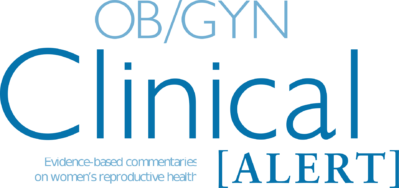
OB/GYN Clinical Alert – June 1, 2022
June 1, 2022
View Issues
-
Age and Risk of Sterilization Regret: Analysis of a Contemporary Dataset
In this retrospective analysis of the 2015-2017 and 2017-2019 National Survey of Family Growth female respondent files, women younger than 30 years of age were more likely to experience sterilization regret compared to women older than 30 years of age. As women got older, sterilization regret decreased, and no other demographic or clinical factors, including race, parity, educational attainment, or medical reasons for sterilization, were associated with regret.
-
Does Bilateral Salpingo-Oophorectomy at the Time of Benign Hysterectomy Reduce Ovarian Cancer Risk?
In this retrospective cohort study of 195,282 women who underwent benign hysterectomy with or without bilateral salpingo-oophorectomy (BSO), the group who underwent BSO had a decreased ovarian cancer incidence (hazard ratio, 0.23; 95% confidence interval, 0.14-0.38) at 16 years of follow-up compared to those who retained their ovaries.
-
Antihypertensive Therapy for Mild Chronic Hypertension in Pregnant Women
Antihypertensive treatment of mild chronic hypertension in pregnant women was associated with reduced risk of preeclampsia with severe features, medically indicated preterm birth at < 35 weeks’ gestation, placental abruption, and fetal or neonatal demise compared to no treatment.
-
Women Who Experienced Miscarriage or Stillbirth Early in Life Have an Increased Risk of Stroke in Later Life
Investigators performed a comprehensive literature search and meta-analysis of 16 cohort studies and two case-control studies that reviewed the records of 7,808,521 women who experienced complications around pregnancy to determine the subsequent risk of stroke and determined that women who had experienced miscarriage or stillbirth were at a higher risk of future stroke.
-
Hypertensive Disorders of Pregnancy and Increased Risk of Stroke
It has been established that women who have hypertension during pregnancy from any cause, compared to those without a history of hypertension, have an increased risk for subsequent stroke. Investigators in this study from Taiwan looked at the differences between the four major types of hypertensive disorders and the relative risks of subsequent stroke in women.
